Several times we have been asked by a brand if signing a sports sponsorship just for one race was possible and our answer has always been "Yes". However, this does not mean that it is what we suggested to do. The question is: one-race deal: good or bad?
Brands, particularly the ones that are new to sports sponsorship, tend to believe that a one-race deal can be the solution to evaluate the potential results of a year-long sports sponsorship, but it is not.
A sports sponsorship is a toolbox and every brand needs a learning time and a strategy to fully optimise it and generate the first results, that's why one-off activities are not generally the way to go.
A one-race deal is anti-economical and difficult to integrate into a wider brand marketing strategy. Moreover, the personnel inside the brand does not have the time to understand how to utilise the sponsorship assets.
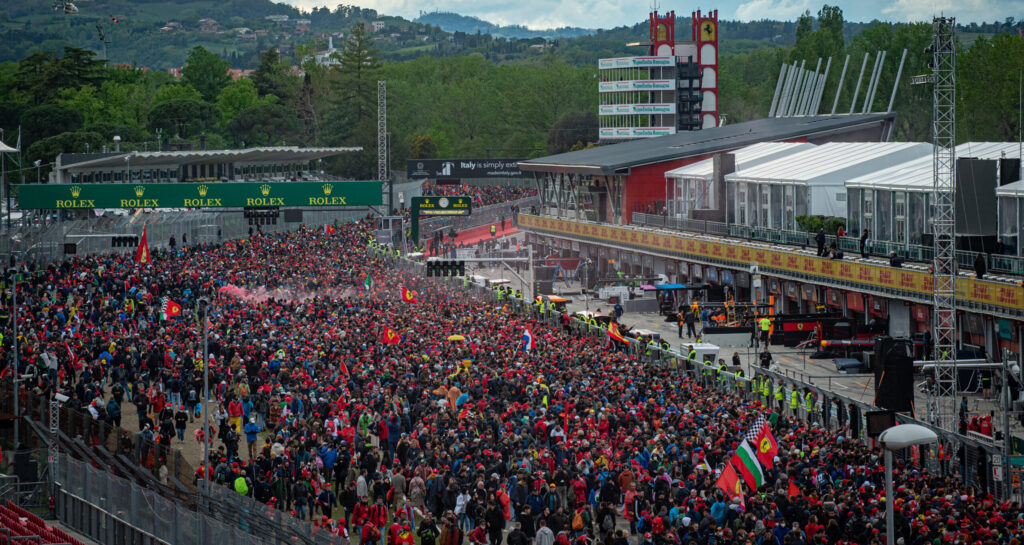
So, we could say that overall a one-race deal is bad. However, there are situations which can be useful. For example, if your objectives as a brand are focused on that single market and your only ambitions are media value generation and delivery of hospitality experiences, it can work.
Also, if you have already signed a sports sponsorship deal for the season after, you can use the one-race deal to announce the deal and have your marketing team familiarise you with the team.
In conclusion, a one-race deal can be useful in a couple of situations but it is not an alternative to a full-season deal. Instead, it can be a total waste of money if there is no strategic reason behind it.
This is original editorial content from Drive Sports Marketing, an agency specialising in Formula 1 sponsorship, Formula E sponsorship, MotoGP sponsorship, and WEC sponsorship.
If there is a brand that is truly motorsport-driven, that brand is Motul. They are involved in almost any form of racing and we took the opportunity to have a chat with Romain Grabowski, Head of Brand, to understand how they approach a partnership and what are their future plans.
Motul is a brand with a strong heritage in motorsport, how everything started and how you can evolve such a strong brand every year?
Exactly, Motul decided to be involved in motorsport from the very beginning to develop and improve the product but then from 1954, specifically at the 24h of Le Mans, Motul understood that motorsport was also a great platform to raise the awareness of the brand. However, because of sponsorship regulations, we had to wait until 1972 to be the sponsor of a car, in that case, a BMW Schnitzer. Today, we are still in motorsport because even if it is not mainstream as it used to be, there is still a strong community of passionate people and at Motul, we are truly passionate ourselves about motorsport and we want to meet the fans and show the technicalities of our products. Moreover, racing is the best place to build relationships with OEMs.
You are involved in so many championships, how do you select what to sponsor and are you afraid that there might be some cross-over of audiences in some instances?
No, we are not afraid. We have a very clear strategy in motorsport: we are very involved in motorcycle where we are n.1 brand and we feel that is our responsibility to keep this position. Regarding cars, GT racing is very important for us because it is a good compromise between being premium and being close to road cars. Then, we like endurance racing because few clients are looking for performance, but all of them wants reliability. So, endurance racing is the perfect place to showcase our capabilities.
Do you see Motul more as a motorcycle-dedicated brand rather than a car-dedicated brand and what are your plans?
Both, but we can actually lubricate also marine and truck engines. When we decide to enter a market, we start activating the motorcycle community because it is made of passionate and DIYers and after that, we use these solid foundations to access the passenger car market. So very often we get to the car customer via motorcycle.
You recently entered the lifestyle space, tell us more about it.
We are one of the few companies that can do it in a very genuine way because of our strong heritage since 1853. And we are doing it because we want to share more with our fans, until 2020 we were able to provide very high-quality lubricants. Now we can provide clothing and step by step we will be able to provide much more. But we will only do something that is aligned to the Motul brand and our environment.
As we enter the final quarter of this action-packed year, we thought to look at the key sports marketing trends in 2021.
Clearly, many of them are the consequence of the disruption that the COVID-19 pandemic created in our world, but some are here to stay and worth considering if you are planning your sports marketing strategy.
Embracing complexity: Changing fan habits and new technology are transforming the way that sport is delivered and consumed. This trend has only been accelerated by the pandemic, creating a complex, fragmented distribution landscape that offers both challenges and opportunities for the sports industry.
Entertain me: While demand for non-live content has been growing in recent years, the pandemic has cemented it as a crucial part of the way fans engage with sports. The lack of live events drove rights holders to open up archives and create different experiences while sparking greater interest in content beyond the field of play.
Performance and flexible partnerships: There are significant pressures on the budgets available for sports sponsorships, from the increased attractiveness of digital ads to the economic fallout of the pandemic and the impact of event postponement and spectator-free stadiums.

Tech boom: Data matters more than ever, fans are demanding ever-evolving ways of engaging with sport content and disruptors are reshaping every aspect of the market. During this time of transformation rights holders and brands must look to embrace the opportunities presented by the boom in innovation in sports technology.
A new essential ingredient: The mainstream potential of the esports phenomenon was well established before the pandemic as one of the fastest-growing sports segments in the world. But, the restricted access to in-person sports events as COVID-19 spread across the globe drew in even more viewers and competitors, including those from traditional sports.
While ongoing uncertainty about the resumption of play in various markets continues to have an impact, there are positive trends that have either accelerated during the COVID-19 pandemic or look set to soar during the transition period and beyond.
These trends offer rights holders and brands attractive opportunities to further develop or establish revenue streams and to drive deeper and richer fan engagement in the short term while positioning for higher growth once social and travel restrictions are eased.
As a sports marketing expert that supports brands to anticipate and capitalise on new trends in sports marketing, Drive stands ready to help rights holders and companies navigate current uncertainty to make the best strategic choices to harness the potential of these key trends.
This is original editorial content from Drive Sports Marketing, an agency specialising in Formula 1 sponsorship, Formula E sponsorship, MotoGP sponsorship, and WEC sponsorship.
We live in a society that is more than ever data-driven. Almost every aspect of our lives is tracked, analysed and stored. It comes as no surprise that also sports sponsorships are leaning towards this approach considering audience insights as the key to success.
Today brands can obtain large but also specific data when talking to a sports property to understand if that sport and that team are the right fit for them. But why should a brand undertake this analysis?
Because it would be very superficial to select a sport or a team over their competitors only based on how big their audience and fan base are. What matters are more specific demographic data, buying habits, hobbies, passions, disposable income and so on. Those are the data that a brand should look for when comparing sports properties.

For example, Formula 1 fans are more likely to be interested in finance and investments than average, so probably if you are a fin-tech brand, this is the sport where you should be. However, each team has their own fan base which is the people that you, as a partner, will speak to the most.
So, the second step of the analysis is to look into that fan base going way beyond reach and engagement, instead, you should focus on understanding if there is an affinity towards your products and services.
In our previous article, we talked about how authentic storytelling is essential to the success of a sports sponsorship, but if you are telling this story to an audience that is not interested, it will all become pretty useless.
That's why every time we talk to a brand, presenting them with several options, we provide audience insights: to make sure that there is not only a good story to tell but an audience interested to listen to it as well.
This is original editorial content from Drive Sports Marketing, an agency specialising in Formula 1 sponsorship, Formula E sponsorship, MotoGP sponsorship, and WEC sponsorship.
When faced with a sports sponsorship opportunity some brands say that they don't have enough marketing budget, but then, after a series of questions, you understand that they are spending 10 times the money required for the sports sponsorship on plan advertising. Is it the right choice? It depends.
An advertising campaign (online/offline) is a pretty simple tool to manage for a brand, so if you are a company with a small marketing department and perhaps you are still working on your brand's story, probably it is easier to manage an advertising campaign rather than a sports sponsorship.
However, the effectiveness of a sports sponsorship is much higher than plan advertising, here is why:
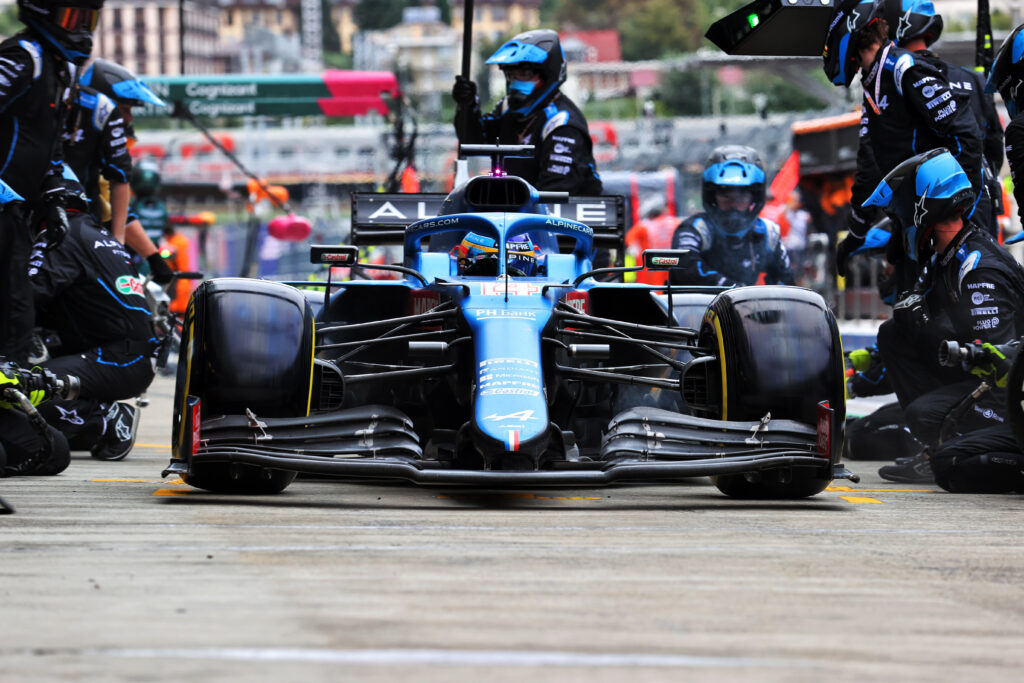
We don't deny that a sports sponsorship can be challenging to deploy at first. A sports sponsorship is not a tool but a toolbox and therefore requires coordination within the company. Moreover, because of the emotional factor connected to a sports sponsorship, a brand needs to have clear storytelling.
However, there are agencies that support brands exactly in doing that: from developing a sports marketing strategy to structuring a sports sponsorship with the right team in the right way.
Conclusively, who is the winner between sports sponsorship and advertising? NBC and 21st Century Fox have already made plans to eliminate 50% of commercials shown during live television events to keep viewers from shying away.
That's a clear answer and a clear winner.
This is original editorial content from Drive Sports Marketing, an agency specialising in Formula 1 sponsorship, Formula E sponsorship, MotoGP sponsorship, and WEC sponsorship.
When looking at which sports property to sponsor, there is one aspect that is overlooked: How team culture influences sponsorship acquisition.
A sports sponsorship is, after all, a relationship between two entities that seek mutual benefits and there is no benefit if there is no cultural fit.
A sentence that we often say when we advise a brand on who to sponsor is "This is a good team to work with", but what does it mean?
It means that the team has a positive attitude, a flexible approach and a strategic way of working with the partners. This makes the overall process much more efficient and the results much more effective.
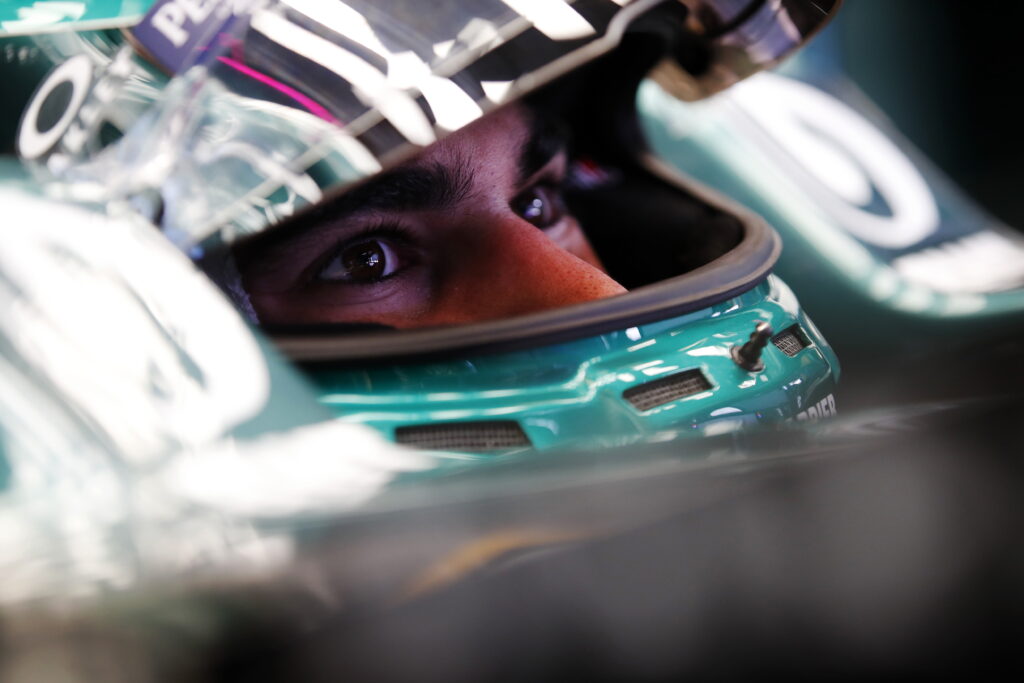
A sports sponsorship is often a multi-year agreement and, as a brand, you don't want to work long-term with a sports property that is over-protective of their marketing rights, slow in replying to your requests and unwilling to go a bit beyond their contractual obligations to satisfy your needs.
The last couple of years have been very challenging for the sports marketing industry, but some sports properties have been able not only to retain their partners but also to acquire a large number of new sponsors, why? Because those are properties with the right culture.
How can a brand know if the culture of that team is more commercially-minded than the other one? Simple, by relying on experts that have a large network in the ecosystem and know exactly how each team operates.
This is original editorial content from Drive Sports Marketing, an agency specialising in Formula 1 sponsorship, Formula E sponsorship, MotoGP sponsorship, and WEC sponsorship.
Sports sponsorship and B2B: It is one of the most recent trends in the industry, it is the tendency for deals to include a B2B proposition. What does it mean?
Simply put, a deal is partially or even totally connected (and dependent) to a B2B relationship between the property and the sponsor.
Some sports sponsorships are effectively born from an existing business relationship between the parties or when negotiated, the property and the sponsor agree to a variable or fixed value connected to the B2B element. Let's give some examples.
You are the lubricants supplier of an automotive manufacturer who happens to have a Formula 1 team. You want to strengthen the relationship and perhaps promote the association, what can you do? Engage with the Formula 1 team and invest a small part of the money you make with the B2B relationship into the racing team.

Another example: you are a technology company and agree to supply your products for free to the Formula 1 team in exchange for marketing rights. On top of that, you recognise to the team a commission if you make a business deal thanks to their introduction.
By looking at those two examples, we would all agree that the B2B element in a sports sponsorship deal is an opportunity. But sometimes, it can also be a threat.
When the focus of the deal shifts too much towards the B2B element rather than the marketing proposition, some companies tend to forget the intrinsic brand and communication value of a sports sponsorship. For instance, some clothing and forex brands are very much commercially driven and tend to invest only as much as they can make from the B2B relationship.
This can be a challenge because not all B2B relationships have a consistent and adequate cash flow and, also, the rights holder can't always guarantee that a deal can be done.
Conclusively, it is important to have a B2B element in a sports sponsorship as it makes it easier to start a conversation and gets both parties motivated to make the relationship work. But one should never forget the brand and communication value of a sports sponsorship which, in most cases, already justifies the investment.
This is original editorial content from Drive Sports Marketing, an agency specialising in Formula 1 sponsorship, Formula E sponsorship, MotoGP sponsorship, and WEC sponsorship.
Up until the late 1980s, CEO Syndrome (when a company sponsors horse racing simply because the CEO is passionate about it) was the main cause of why sports sponsorships fail.
While sports sponsorship decision-making will always have a level of subjectivity, growing accountability to stockholders and stakeholders have resulted in a more professional approach to sports sponsorship.
However, even if more complex than in the past, there are still a number of recurring reasons why sports sponsorships fail.
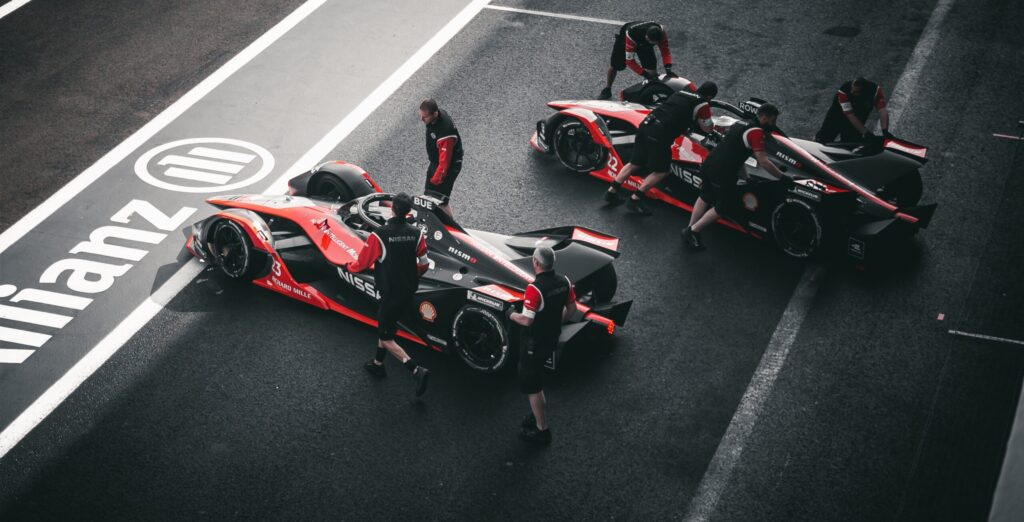
Greenwashing: whether it is an environmental tie or sports tie unless the sponsor is genuinely seen as integrated and aligned to the sponsored property, the power of that relationship can easily backfire. Don't sponsor green, unless you are green.
Signing the check and dropping the ball: some companies, particularly the ones that are sponsoring for the first time, tend to think very short-term. They spend pretty much all the budget on buying the marketing rights and hope that some brand visibility and a couple of social media posts will dramatically increase sales or brand preference.
Property hopping: one-year commitments are generally of dubious benefit. The learning curve in sponsorship is longer than in other media and sponsors usually don't know in the first year how to maximise the assets they have got. The relationship with the property also takes time to develop and only after a certain period there is a mutual understanding of each other needs.
Failure to sell internally: leveraging a sports sponsorship, from the brand side, requires coordination and collaboration amongst several departments: marketing, brand, communication, digital and creative. It is crucial that before signing a sports sponsorship deal, everyone inside the company is aligned and willing to put in the effort required.
Too many little sponsorships: it is generally much more effective to build brand equity by concentrating sponsorship funds than spreading them around. Many times companies are so eager to enter into many sports to buy very limited marketing rights in each sport that they will struggle to leverage.
Avoiding these mistakes is not as straightforward as it seems, which is why there are experts who support brands navigating the sports sponsorship ecosystem.
This is original editorial content from Drive Sports Marketing, an agency specialising in Formula 1 sponsorship, Formula E sponsorship, MotoGP sponsorship, and WEC sponsorship.
When planning your sports sponsorship strategy, you generally have several alternatives even within the same sport.
However, they offer different benefits and assets and require different levels of investment. In this article, we are going to explain the differences between sponsoring a championship, team or driver.
Whether you are sponsoring the championship itself, a team taking part in it or a driver racing in that series, you will speak to the same audience but you will be utilising different tools.
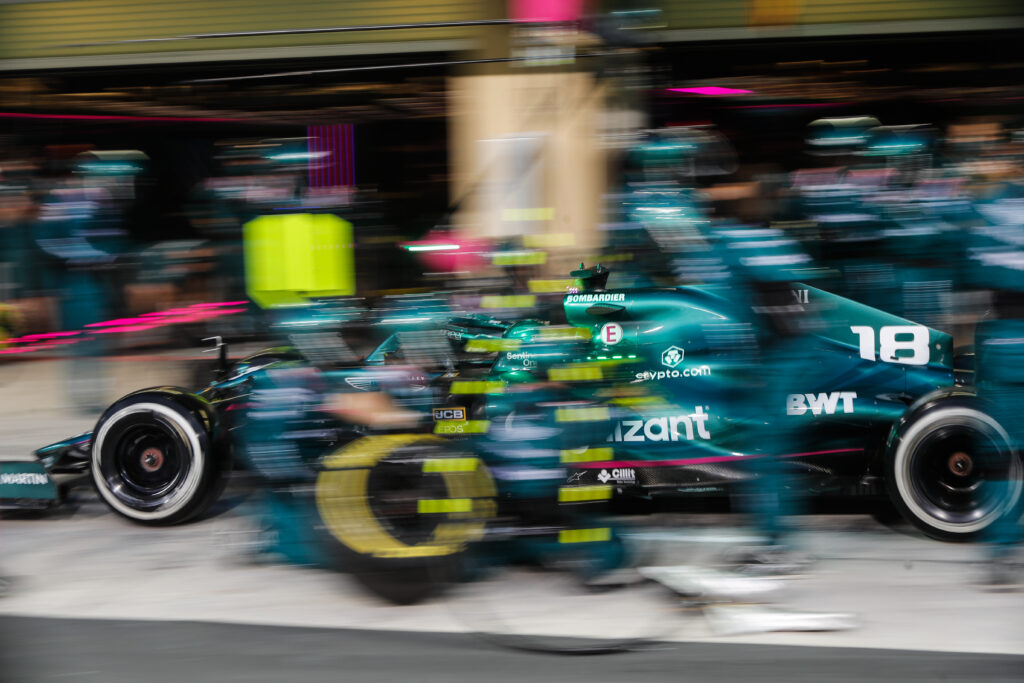
Sponsoring the championship means that you will be given huge branding assets and premium hospitality at races. Moreover, if you are a brand that wants to put its product and services within the "broadcast" then that's probably what you should go for. Think about how AWS integrates its insights technology to enhance the F1 fans' experience before, during and after the race.
On the other side, sponsoring a team will give you more intimate access to the sport with the opportunity to have your guests meet the drivers and be inside the garage during the race. But also, you can utilise the team HQ for corporate and experiential events.
Associating yourself with a driver is another way to go and it can be very powerful if you are looking to create unique content and utilise him/her as a brand ambassador. Moreover, a driver sponsorship can help to penetrate a particular market and to develop licensing opportunities.
Last but not least the financial aspect: sponsoring a championship is generally the most expensive option, followed by a team sponsorship (which can vary a lot based on the chosen team). Sponsoring a driver is, instead, probably the least expensive way to get into top-level motorsport.
So, how can you decide on sponsoring a championship, team or driver? How can you decide on sponsoring a championship, team or driver? Simple, rely on experts that can guide you towards the best opportunities.
This is original editorial content from Drive Sports Marketing, an agency specialising in Formula 1 sponsorship, Formula E sponsorship, MotoGP sponsorship, and WEC sponsorship.
Let's start with that, you want to have a nice dinner and decide to cook pasta alla carbonara. You carefully write down a list of the ingredients, go to the grocery store and buy them, perhaps you have also reviewed the cooking process and, thanks to that, you and your family will have a superb dinner.
Or you decide that you want to cook pasta alla carbonara and quickly search the internet for the ingredients while you are at the grocery store. You end up buying ham and standard parmesan instead of guanciale and pecorino. On top of that, you will also mess up a bit the cooking process and you will have a miserable dinner.
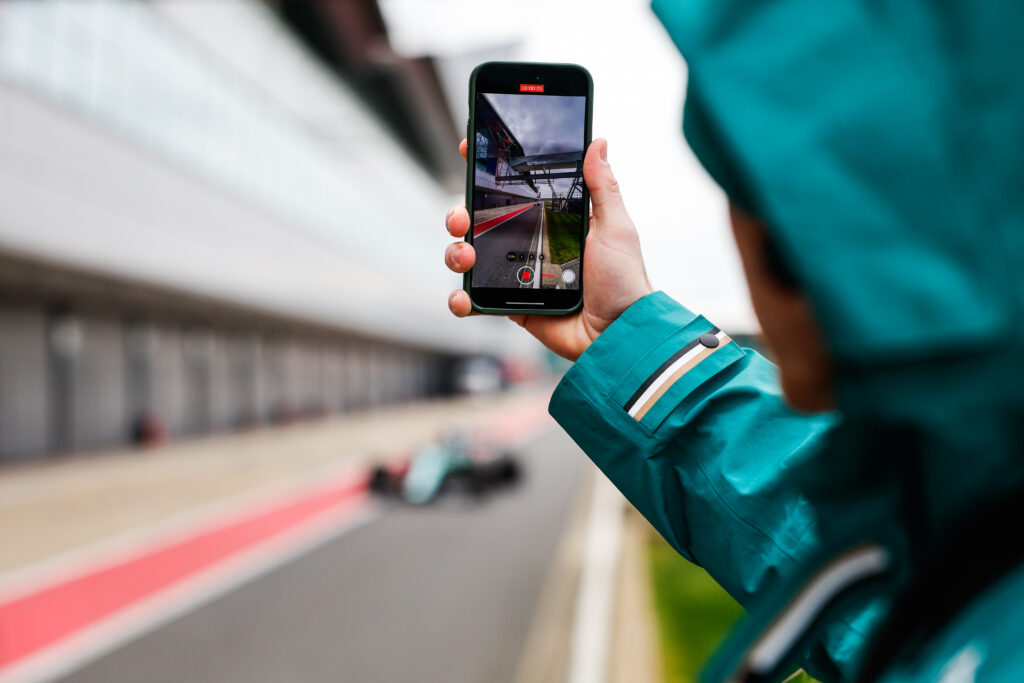
How does that compare to sports sponsorship, here we go: before signing a sports sponsorship deal, a brand needs to have already in mind the key pillars of its plan and also the timing and of the activations. If not, they will end up buying useless marketing rights and leaving on the table crucial ones. That's why sponsorship activation planning is crucial and you should always think ahead when structuring your marketing rights package.
For instance, if your ambition as a brand is to drive traffic to your website is pretty much pointless to spend money on a large number of hospitality passes. It would be much more effective to ask for additional access to the drivers to create content. And, perhaps, just a few passes for the winners of the competitions that you will organise on your website to generate online reach and engagement .
In our previous article, we have already touched base on the importance of selecting the right championship and the right team but this is not enough when a sponsorship package is being negotiated without a clear idea of the activation.
This is original editorial content from Drive Sports Marketing, an agency specialising in Formula 1 sponsorship, Formula E sponsorship, MotoGP sponsorship, and WEC sponsorship.